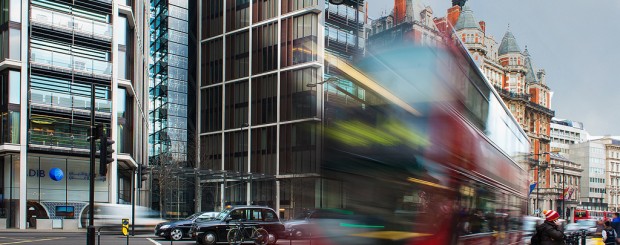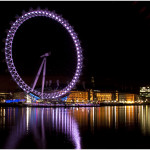London vs. Singapore Cost of Living
London and Singapore: two of the most vibrant and exciting cities on the planet – and worlds apart not only in distance, but in cultures, traditions, and it has to be said, the cost of living.
Let’s face it, it’s common knowledge that the UK capital city has eye-wateringly high rental costs, restaurant prices, and let’s not even get started on petrol (gas) costs…
But before we begin comparing individual criteria, let’s take a look at the average person’s monthly disposable net salary in both cities. When we look at this in UK sterling, this figure comes out virtually the same – at around £1,980 (according to crowd sourcing website, Numbeo, October 2015).
In fact, Londoners have around 0.42% more disposable salary than their Singapore equivalent.
So, let’s take a look at the prices comparisons in more detail. Current data is taken from Numbeo (as mentioned above) and Expatistan, a similar service that provides real time information on the cost of living in cities around the world.
Property
It’s a well known fact that property in London is expensive. When it comes to renting, expect to pay between 13% to 28% more in London, depending on whether you rent in the centre or the suburbs.
For example, a 1 bedroom apartment in the city centre of Singapore will set you back an average of £1,468, compared to £1,662 in London.
When it comes to purchasing property, you’ll pay around 30% to 32% more in London. You can check out property for sale and rent in London on Zoopla, Right Move, and Prime Location – and for a little inside tip, why not check out newcomer to the market, Purple Bricks, a service that allows private sellers and landlords to advertise for very low fees.
Because of this, you might just find yourself a bargain, as lower fees equal lower outgoings for both parties…
Utilities
Once you’ve found somewhere to live, you need to pay for heating, water, council tax, Internet, TV, etc.
For your basic utilities (gas, electricity, water) you can budget at around £136 per month in London (against Singapore’s £90) for an 85 square metre apartment.
When it comes to water bills, you don’t have much choice in your supplier, as you’ll come under whoever deals with the water in the area in which you live.
However, with gas and electricity, you certainly do have a choice, and there are many different suppliers all vying for your custom. These include EON, British Gas, and N Power.
Check that you’re getting the best deal possible by using the independent analysis website U Switch on a regular basis.
Internet is similarly priced in both cities, with the UK coming in at around 5% more per month. TV prices vary depending on the supplier.
In the UK, there are many of these all offering different services. If a large amount of channels is your priority, then Sky is the one for you.
Other choices included Virgin Media, BT TV, and Talk Talk, but if you really want to keep the costs down in this department, simply purchase a FreeView TV box, and you won’t have to pay any monthly fees – ever!
Transport
One thing that’s similar about both cities is the traffic – there’s loads of it!
And because they both have great public transport systems, the need to own a car is almost obsolete. However, if you do want to buy one, then London certainly comes up trump, with new car prices around 70% cheaper than in Singapore.
Once you’ve purchased, though, you’ll find petrol around 16% more expensive in London.
Petrol prices also vary somewhat depending on the area. You can check out the cheapest fuel prices closest to you using Petrol Prices, where you simply enter your postcode to display a list of the cheapest fuel near your location.
What about public transport?
In London this consists of the overground and underground trains, as well as the London Buses. All of these are managed and run by Transport For London.
Now, you might want to take a deep breath here if you’re used to the prices in Singapore, because it’s a tad different in London – by almost 200%!
Yes, a monthly public transport pass in Singapore will set you back around £45. In London, expect to pay £130.
And it doesn’t stop there, because if you thought that was a big difference, don’t even think of taking a taxi. You’ll pay nearly 500% more in London than Singapore.
Groceries
London fares a little better in this department, with certain foods coming in at well below Singapore prices. This includes bread (at around 10% less), Milk (35%), local cheese (40%), and most fruit and vegetables, such as potatoes, onions, lettuce, bananas. etc (between 6% – 26% less).
However, items such as eggs are far more expensive (nearly 70% more), as is chicken (78%), rice (16%), and bottled water (14%).
There are many savvy ways in which to make your weekly grocery shop cheaper. One is to sign up to the big supermarket loyalty card schemes (Sainsbury’s, Tesco, Asda, Waitrose, Morrisons), whereby the more you shop the more points you get.
These can then be exchanged for money off your food bill or for various other gifts.
Other ways are to visit the stores later in the evening when fresh foods approaching the sell by date will be offered at greatly reduced prices.
Eating out
Okay, so London once again hits the top spot when it comes to the price you’ll pay for the privilege. Eating out in a restaurant in the UK capital city is likely to set you back between 87% to 155% more than in Singapore.
But on the plus side, if you enjoy a daily cappuccino, you’ll pay around 1% less in London (and we have to say, we do make extremely good coffee)!
Entertainment
You’ll be glad to hear that it will cost you less to keep fit in London, with average gym memberships costing around 20% less than Singapore.
If you’re a movie fanatic, though, your habit is going to set you back over 100% more in London. One way to bring this cost dramatically down is to sign up for the Cineworld Unlimited card, where you can pay a fixed monthly fee of £16.90 per month (£19.90 if you want to go to the London West End cinemas), and you can see as many films as you like).
Now that really does represent great value for money, if you like to go to the movies on a regular basis.








